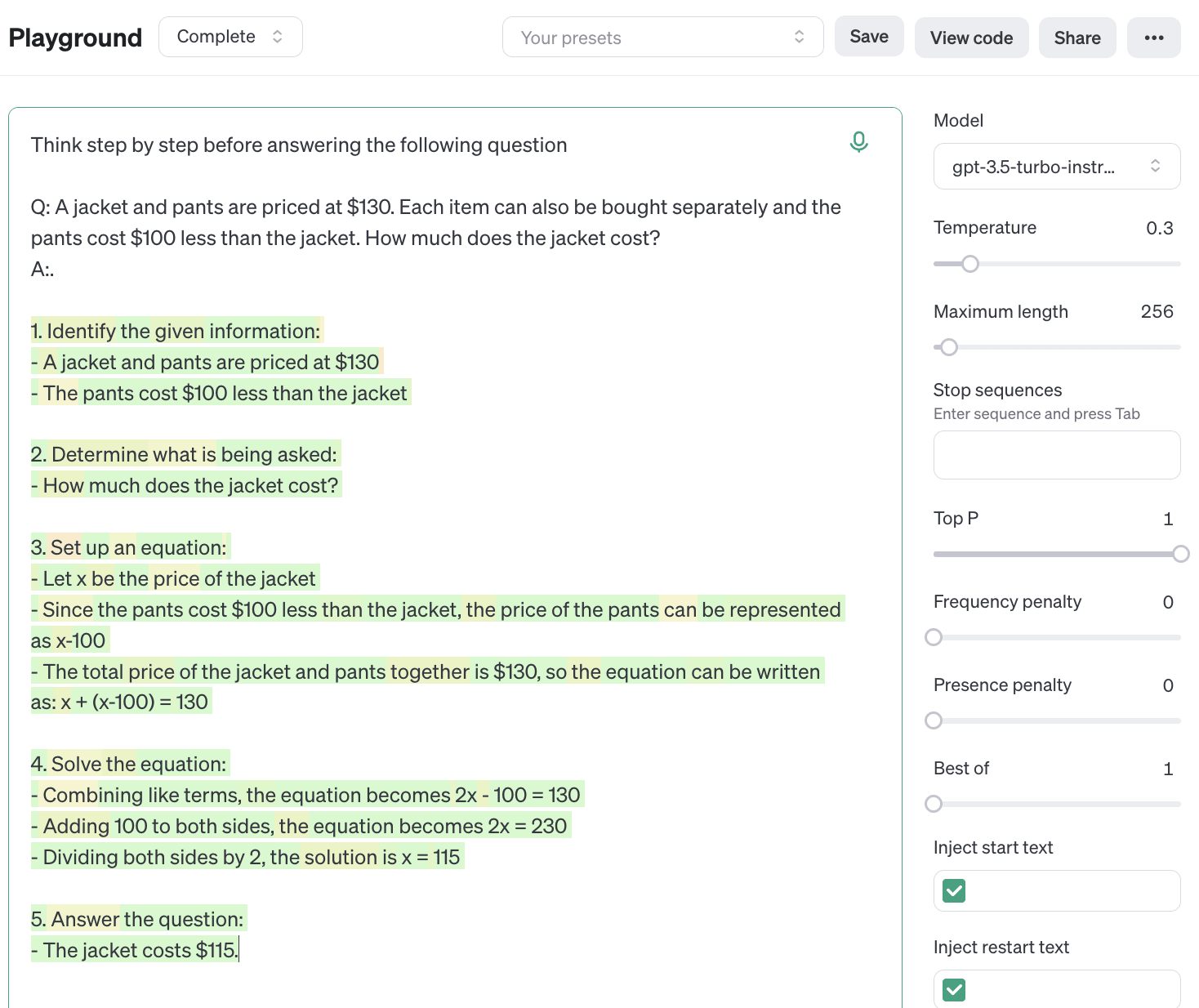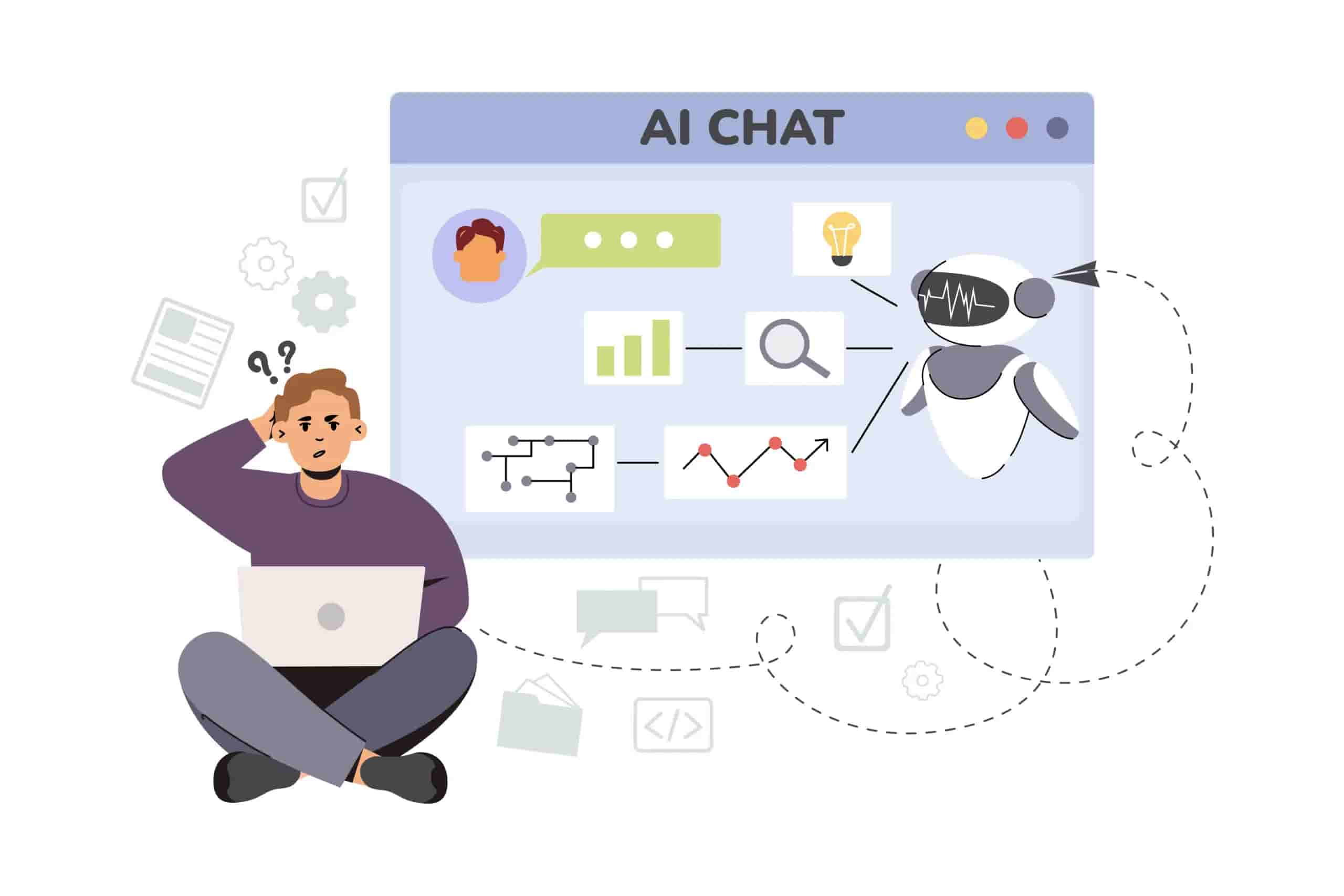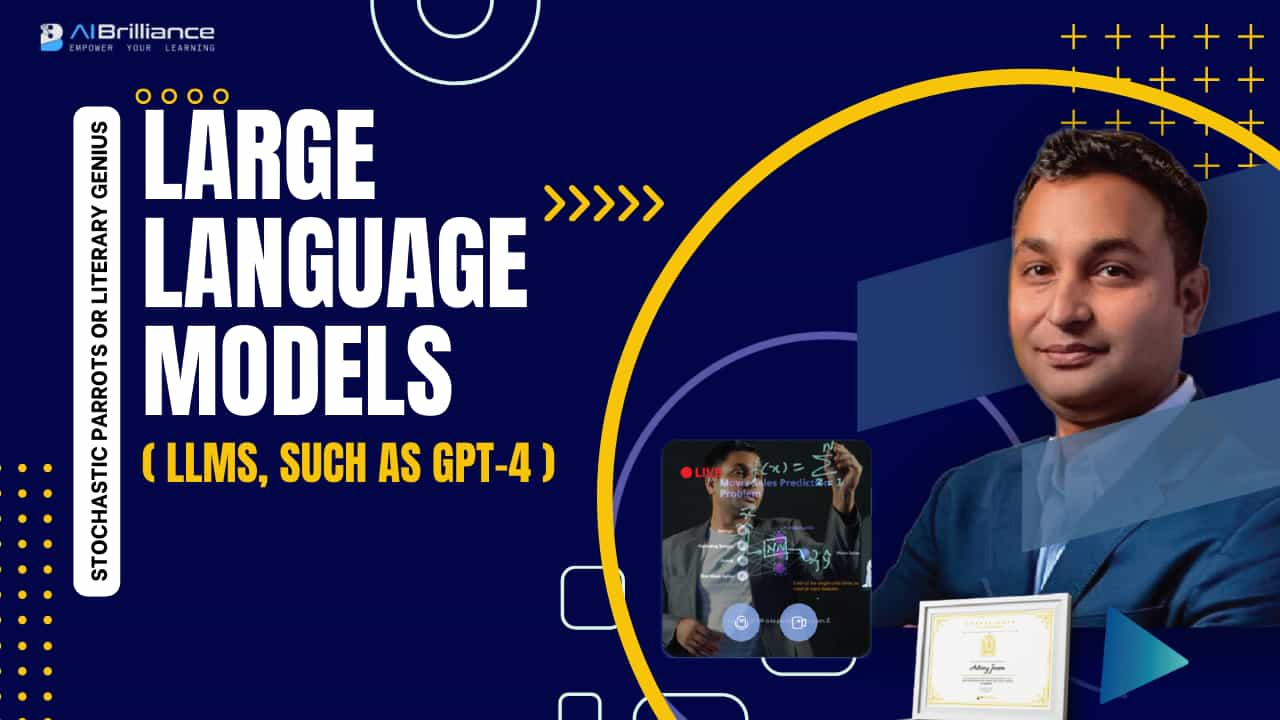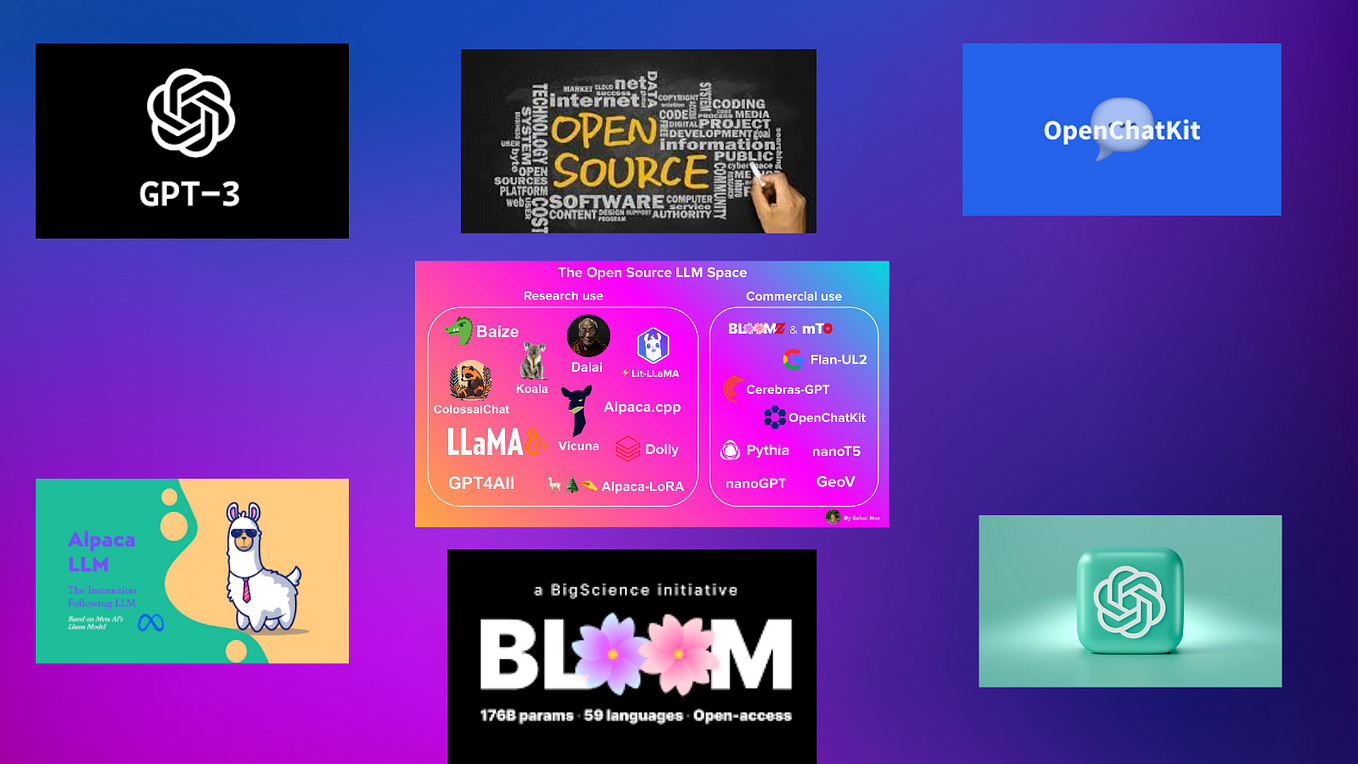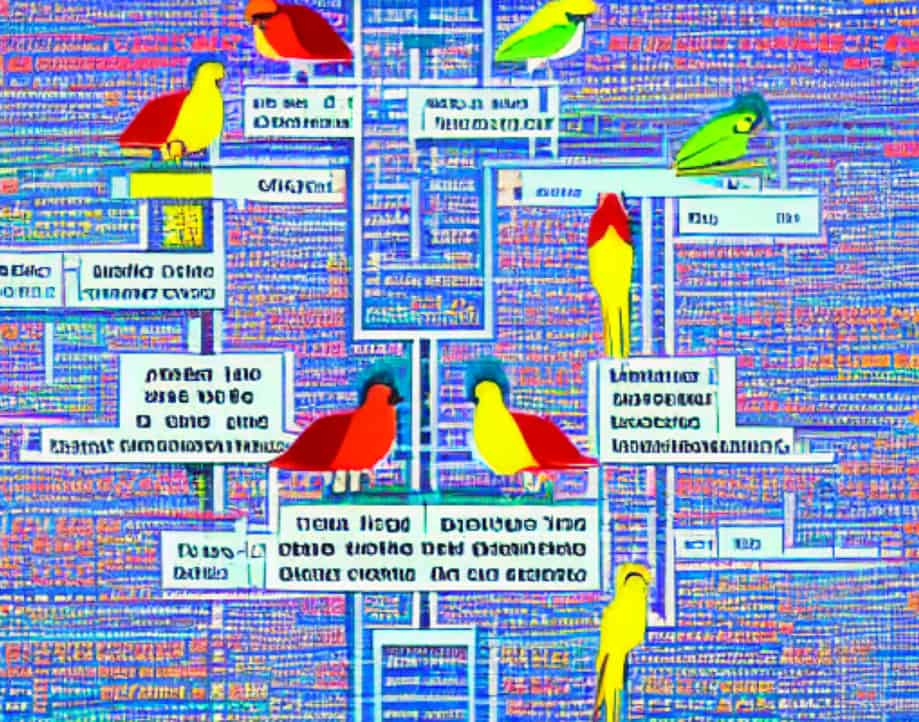Smart Tips About Are Llms Just Parrots

The Enduring Enigma of LLMs: Beyond Mere Repetition?
Exploring the Depth of Large Language Model Capabilities
The digital realm is currently captivated by the remarkable abilities demonstrated by Large Language Models (LLMs). These sophisticated AI systems can produce compelling marketing narratives and generate surprisingly coherent creative pieces, exhibiting what appears to be a profound understanding and generation of human-like text. However, a fundamental inquiry persists: do LLMs genuinely comprehend the subtleties of language, or are they simply advanced mimics, expertly replicating patterns without true understanding? This question carries significant weight, influencing not only the trajectory of artificial intelligence but also our interactions with and reliance upon these increasingly ubiquitous technologies.
Critics frequently emphasize the training datasets of LLMs, vast collections of text and code sourced from the internet. Their argument posits that these models learn statistical correlations between words and phrases, enabling them to predict subsequent words in a sequence with notable accuracy. This predictive capacity, they assert, does not equate to genuine comprehension. Similar to how a bird can be trained to echo phrases without grasping their meaning, LLMs, according to this perspective, are merely re-presenting information encountered during their training, albeit in novel and often impressive configurations.
Furthermore, those with a skeptical viewpoint point to instances where LLMs display a deficiency in common sense or factual precision, sometimes termed "hallucinations." These inaccuracies, they contend, underscore the superficial nature of their linguistic proficiencies. If an LLM truly possessed an understanding of the world and the significance behind the words it employs, it would presumably be less susceptible to generating nonsensical or factually incorrect statements. The capacity to assemble words grammatically and thematically, therefore, does not necessarily indicate a deeper cognitive grasp of the underlying concepts.
Nevertheless, dismissing LLMs as simple imitators might be an oversimplification of a dynamic and rapidly advancing field. While it is undeniable that these models learn from patterns within data, the sheer scale and complexity of their training have led to the emergence of capabilities that were not explicitly programmed. These include the ability to perform tasks such as translation, summarization, and even answering intricate reasoning questions with a level of competence that often surprises even their creators.
The Emergence of Novel Abilities: More Than Just Pattern Recognition
Examining the Unexpected Skills of LLMs
The concept of "emergent abilities" suggests that intricate behaviors can arise from simpler foundational mechanisms when expanded sufficiently. In the context of LLMs, the extensive datasets and complex neural network architectures may be giving rise to a form of understanding that transcends basic pattern matching. While they may not possess consciousness or subjective experience in the human sense, their capacity to generalize from their training data and apply their knowledge to unfamiliar situations suggests a level of comprehension that is more than mere replication.
Consider the aptitude of certain LLMs to generate creative content, such as poems or short narratives, that exhibit a degree of originality and coherence. Although the style and themes may be influenced by their training data, the specific combinations of words and ideas are frequently novel. This implies that the models are not simply retrieving and rearranging pre-existing text but are actively generating new content based on their acquired understanding of language and the world it describes.
Moreover, advancements in techniques like fine-tuning enable developers to train LLMs on specific tasks and datasets, significantly enhancing their performance in those areas. This focused training can imbue the models with a more nuanced understanding of particular domains, enabling them to answer inquiries and generate text with greater accuracy and relevance. This adaptability suggests a level of learning that extends beyond rote memorization and simple reproduction.
Naturally, the extent to which LLMs genuinely "understand" remains a subject of ongoing scholarly inquiry and debate. Neuroscientists and cognitive scientists are diligently working to unravel the mechanisms underlying human intelligence, and comparing these to the internal operations of LLMs is a multifaceted endeavor. However, the observed capabilities of these models suggest that they are engaging with language in a manner more sophisticated than simple imitation, even if the precise nature of this engagement remains incompletely understood.
The Google Stance: Prioritizing Genuine Comprehension
Aligning Content with Search Engine Intelligence
From the perspective of Google Search, the ability of LLMs to process and comprehend natural language is of utmost importance. Google's algorithms are continuously evolving to better interpret the intent behind user queries and to present the most pertinent and high-quality content. This implies that content creators who aspire to achieve favorable rankings on Google need to concentrate on producing informative, well-structured, and engaging content that demonstrates a genuine understanding of the subject matter.
While keyword optimization remains relevant, simply incorporating keywords into text without providing substantive value is no longer an effective strategy. Google's algorithms are increasingly adept at identifying low-quality content that prioritizes search engine rankings over the user experience. Consequently, content that genuinely addresses user needs and provides comprehensive and accurate information is more likely to be favored by the system.
The discussion surrounding whether LLMs are merely parrots underscores the significance of demonstrating authentic expertise and comprehension within your content. Avoid superficial treatments of topics and instead delve into the nuances and complexities. Provide evidence to support your assertions, cite reliable sources, and offer unique insights that extend beyond simply restating existing information. This approach not only benefits your audience but also signals to Google that your content is authoritative and trustworthy.
Furthermore, structuring your content logically with clear headings and subheadings (such as the ones present here) assists both human readers and search engine algorithms in understanding the organization and key messages of your article. Employing clear and concise language, avoiding unnecessary jargon, and ensuring a positive user experience are all critical factors in optimizing for Google and reaching a broader audience.
Crafting Content for the AI Era: Emphasizing Quality and Insight
Strategies for Resonance in the Evolving Digital Landscape
In an era where AI-generated content is becoming increasingly common, the value of original, high-quality human-created content is likely to appreciate. While LLMs can assist with various aspects of content creation, they currently lack the genuine lived experience, critical thinking abilities, and nuanced understanding of human emotion that characterize truly exceptional writing. Therefore, focusing on these uniquely human attributes can serve as a key differentiator.
Instead of attempting to compete with the sheer volume of AI-generated content, prioritize creating in-depth, well-researched articles that offer distinctive perspectives and valuable insights. Engage with your audience on a personal level, cultivating a sense of connection and trust. Share narratives, impart your expertise, and infuse your own personality into your writing. This human element can render your content more engaging and memorable, enabling it to stand out in a saturated digital environment.
Consider integrating multimedia elements, such as images, videos, and interactive content, to enhance the user experience and provide supplementary value. These elements can not only make your content more visually appealing but also aid in illustrating complex concepts and maintaining audience engagement for longer durations. Remember, the objective is not solely to attract clicks but to deliver a genuinely valuable and enriching experience for your readers.
Ultimately, the key to achieving success in the age of AI is to concentrate on producing content that is both informative and captivating. By demonstrating genuine understanding, offering unique viewpoints, and prioritizing the user experience, you can create content that resonates with both human readers and search engine algorithms, ensuring sustained visibility and impact.
The Future of Language and AI: A Potential Partnership?
Navigating the Evolving Landscape of Communication
The debate regarding whether LLMs are simply parrots is likely to persist as these technologies continue to advance. It is important to acknowledge that AI language models are still in a developmental phase, and their capabilities are constantly expanding. What might appear as mere imitation today could evolve into something resembling genuine comprehension in the future. The distinction between sophisticated pattern recognition and true understanding is fluid and continuously shifting.
Instead of viewing LLMs as purely mimicking entities, it might be more productive to consider them as powerful tools that can augment and enhance human communication. They can assist with tasks such as drafting correspondence, summarizing documents, and even generating initial creative concepts. By engaging in collaborative efforts with these technologies, we can potentially unlock new levels of productivity and innovation.
However, it is also crucial to remain cognizant of the limitations and potential challenges associated with LLMs. Their susceptibility to biases present in their training data, their potential to disseminate misinformation, and the ethical considerations surrounding their increasing sophistication are all important factors that require attention as these technologies become more integrated into our lives. Critical thinking and media literacy will become increasingly essential skills for navigating a world influenced by AI-generated content.
In conclusion, while the "parrot" analogy captures a certain facet of how LLMs function, it likely oversimplifies their capabilities and potential. As these models continue their development, our understanding of their linguistic abilities will also deepen. By prioritizing the creation of high-quality, human-centered content that demonstrates genuine understanding, we can not only optimize for search engines like Google but also contribute to a more informed and engaging digital landscape. It is a compelling evolution, and the possibilities it presents are truly significant.
Frequently Asked Questions (FAQ)
Addressing Your Inquiries
Q: So, are LLMs *really* thinking, or are they just exceptionally skilled at sounding like they are?
A: That's a central point of discussion! Think of it this way: they aren't exactly contemplating philosophical questions. However, they are processing information and generating responses through incredibly intricate mechanisms. It's less about sentience and more about remarkably advanced pattern identification. They resemble that highly intelligent student who can excel on exams but might not fully grasp the fundamental principles — impressive, nonetheless!
Q: How can I ensure my content doesn't get overshadowed by AI-generated text and achieves good rankings on Google?
A: A pertinent question! The key ingredient is *you*. Your distinct viewpoint, your expertise, your human element. Focus on developing truly valuable content that comprehensively and engagingly addresses your audience's needs. Prioritize quality over quantity, incorporate your unique voice, and don't hesitate to inject your personality. Google is becoming increasingly adept at recognizing authentic content, so be genuine!
Q: With the increasing prevalence of AI writing tools, does this imply that human writers will become obsolete? Should I consider a career change, perhaps in artisanal cheese making?
A: Not so fast with the cheese curds! While AI can certainly assist with writing tasks, it's unlikely to entirely supplant human creativity and nuanced comprehension in the near future. Consider AI as a powerful assistant, not a replacement. Your capacity for critical thought, your ability to connect with your audience emotionally, and your generation of original ideas remain incredibly valuable — and probably a more stable career path than artisanal cheese making, unless you have a truly exceptional knack for dairy!








